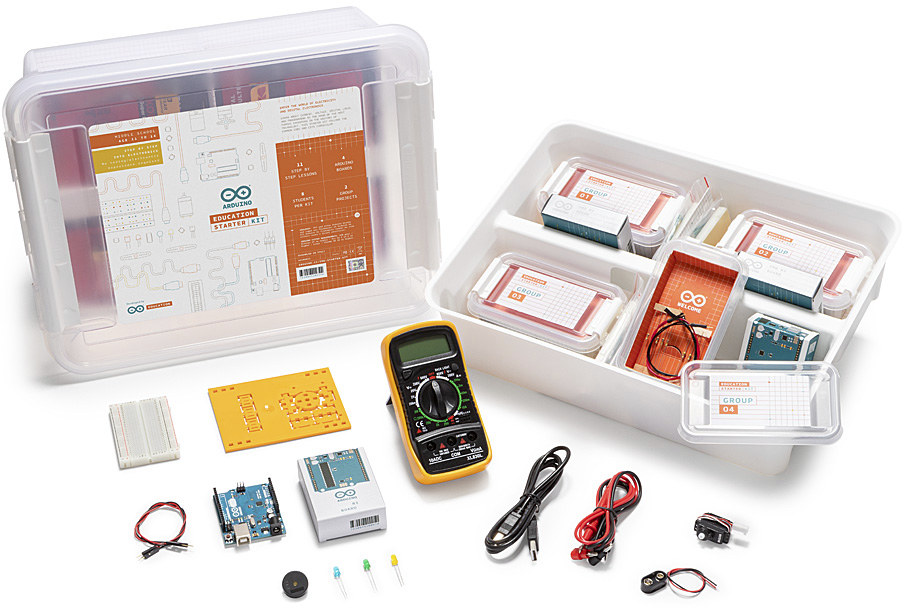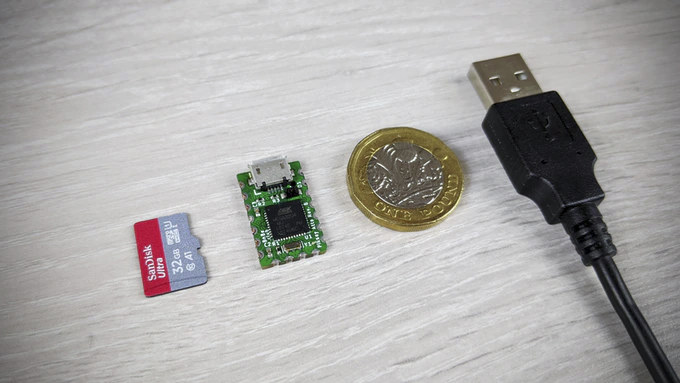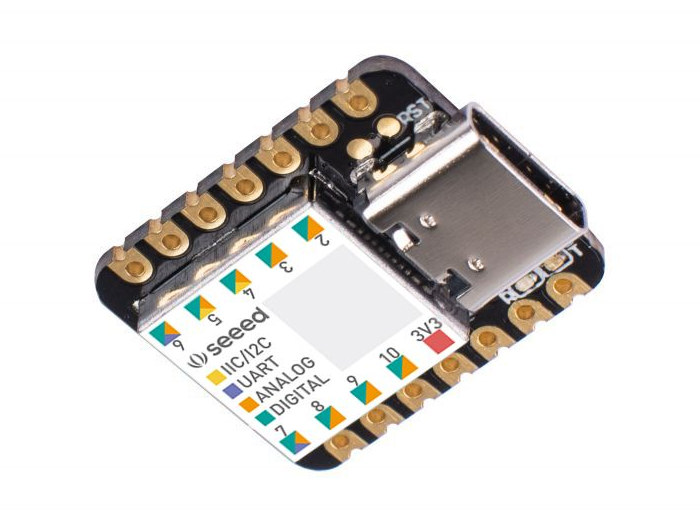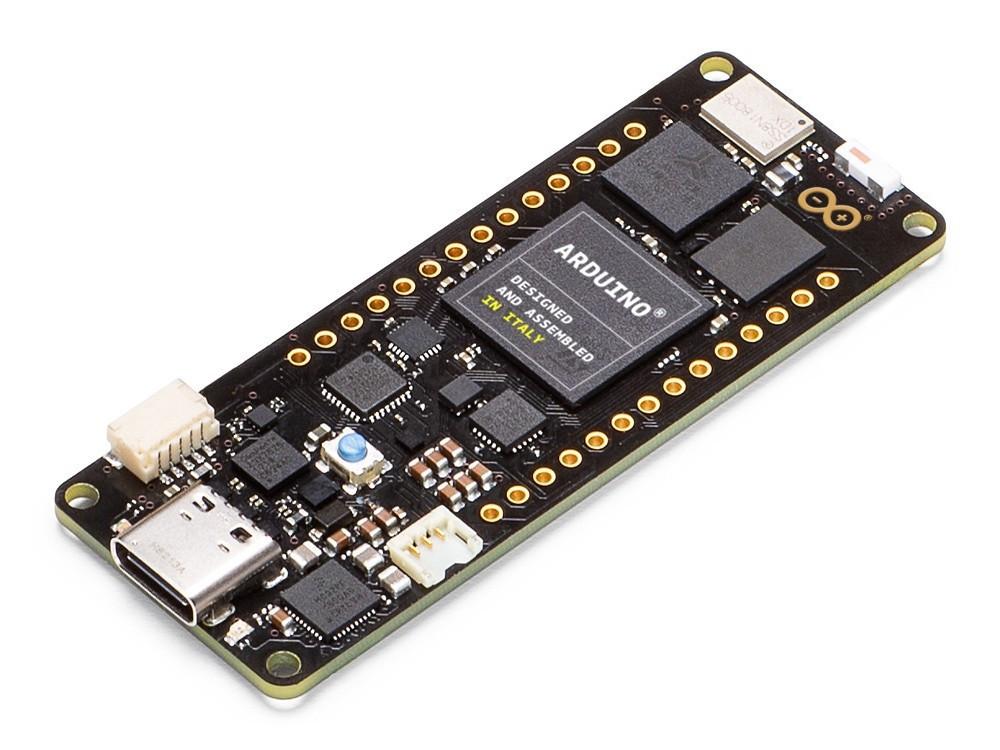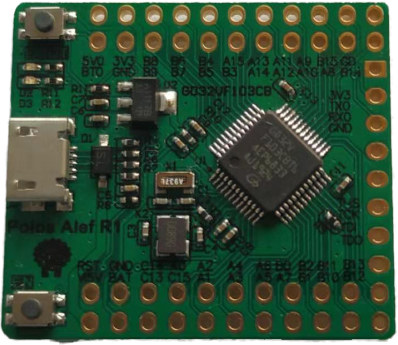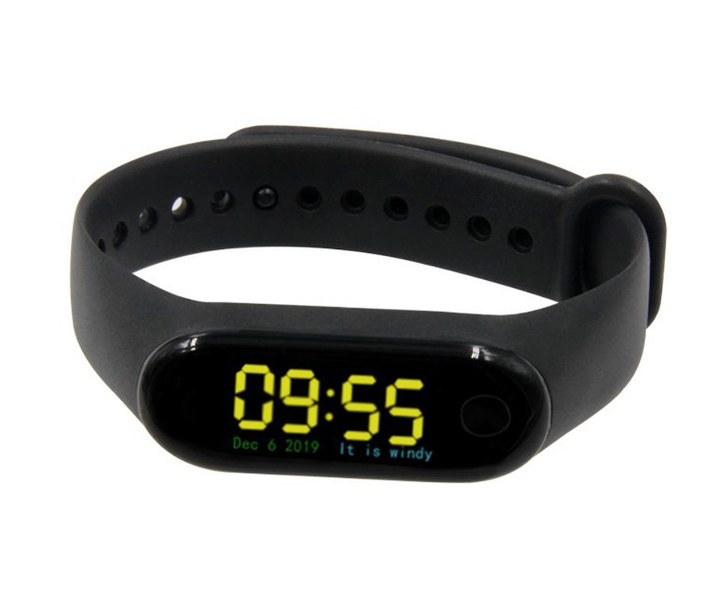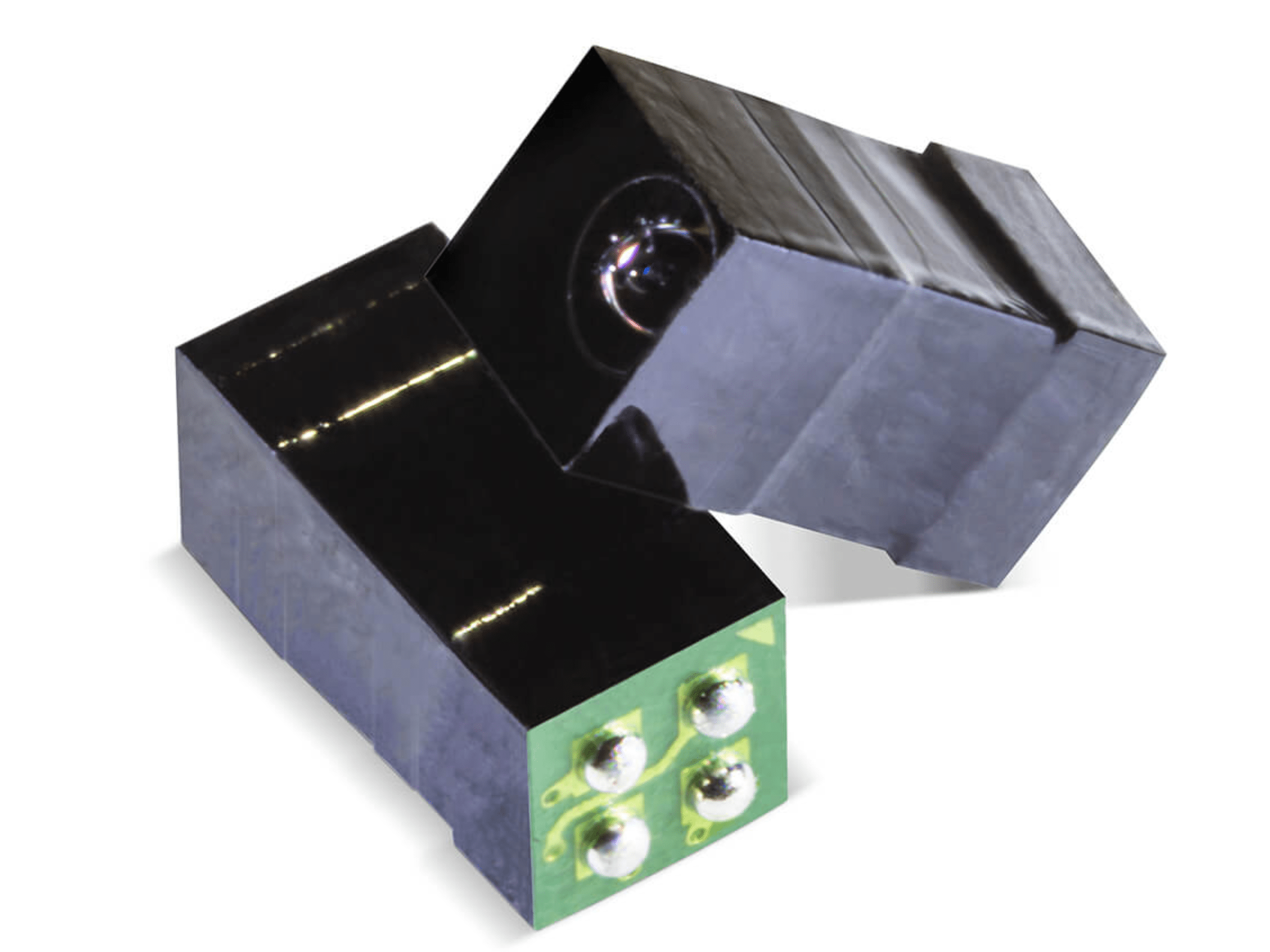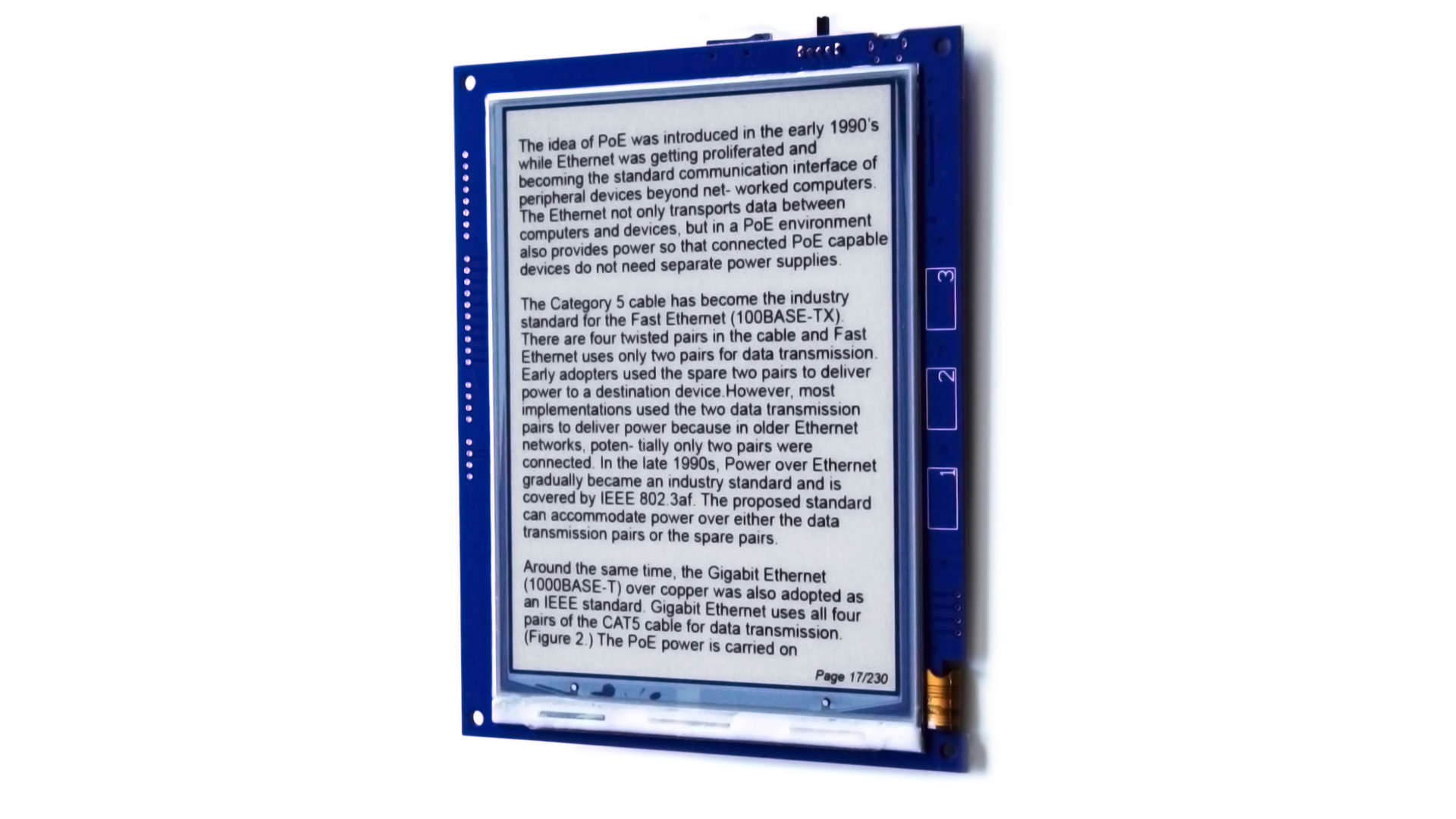We briefly mentioned the Bett Show 2020 in an article about a Snapdragon 7c laptop for education that Microsoft will showcase at the event, but Arduino Education is also present and introduced four new educational kits for pupils and students at different stages of their curriculum. Education Starter Kit – Age: 11+ This kit is for secondary school pupils with no prior experience with electronics or programming. It comes with Arduino boards, breadboard, a multimeter, and other accessories to get started. The kit also includes teacher guides and lessons to wire projects and start programming. IoT Starter Kit – Age: 14+ The IoT starter kit (no photo provided) requires some basic knowledge and targets advanced secondary school and university students who want to learn about the Internet of Things with the kits including various sensors and step-by-step tutorials for ten different projects to help students get introduced to automation, logging, […]
Piksey Atto is a Tiny Arduino Compatible Board with Castellated Holes (Crowdfunding)
Atto is a unit prefix in the metric system denoting a factor of 10−18, so it’s unsurprising that at least one company, namely Nionics, made a small Arduino compatible board called Atto. But somebody must have forgotten to do a web search, as BitsNBlobs Electronics created their own tiny Arduino compatible board, also named “(Piksey) Atto“, and based on the same Microchip ATmega32U4 8-bit AVR MCU. But there are some important differences as we’ll see below. Piksey Atto specifications: MCU – Microchip ATmega32U4 8-bit AVR microcontroller @ 16 MHz with 32KB flash, 2.5KB SRAM, 1KB EEPROM Expansion – 18x castellated through holes for 11 digital I/Os, 4x PWM, and 4x analog inputs, USART/SPI/I2C USB – Micro USB port for power and programming Power Supply – 5V via micro USB port Dimensions – 20.32 x 12.7mm Weight – 1.3 grams Piksey Atto is about twice the size and weight of Nionics […]
Seeeduino XIAO is a Tiny Arduino Zero Compatible Board with Battery Support
Seeeduino XIAO is the smallest Arduino compatible board from SeeedStudio’s Seeduino family. Measuring just 23.5×17.5 mm, the board is equipped with Microchip SAMD21 Arm Cortex-M0+ microcontroller and exposes various digital and analog I/Os. Seeduino XIAO specifications: MCU – Microchip SAMD21G18 ARM Cortex-M0+ microcontroller at up to 48MHz with 256KB Flash,32KB SRAM USB – 1x USB type C port for power and programming Expansion I/Os 2x 7-pin headers with 11x analog inputs, 11x digital I/Os, 1x DAC, SPI, UART, and I2C 3.3V I/O voltage (not 5V tolerant) Misc – 1x user LED, power LED, 2x LEDs for serial port downloading, Reset pads, SWD pads, 32.768KHz crystal oscillator Power Supply – 5V via USB-C power, power pads (VIN/GND) for battery Dimensions – 23.5×17.5×3.5 mm All main components are placed under a shield, but there may be some charger chip (nope: see comments) as the company explains the board supports batteries via the […]
Arduino Portenta H7 STM32H7 Cortex- M7/M4 Industrial Board Runs Arduino Code, Python and JavaScript
Arduino is now at CES 2020 promoting its Arduino Pro all-in-all IoT solution for professionals with the Arduino Pro IDE, Arm Pelion IoT platform for device management, and a new Portenta industry-grade board family starting with Arduino Portenta H7 board powered by STMicro STM32H7 dual-core Arm Cortex-M7/M4 microcontroller. Arduino Portenta H7 Specifications: Microcontroller – STMicro STM32H747XI Cortex-M7 @ 480 MHz + M4 @ 200 MHz MCU with 2MB dual-bank Flash memory, 1 MB RAM, Chrom-ART graphical hardware accelerator System Memory – 2MB SDRAM (upgradeable up to 64MB) Storage – 16MB QSPI NOR Flash (Upgradeable up to 128MB) Connectivity 2.4GHz WiFi 802.11b/g/n up to 65 Mbps and Bluetooth 5.1 BR/EDR/LE via Murata 1DX module On-board 10/100M PHY Video I/F – MIPI DSI & 8-bit camera interfaces via 80-pin expansion connector, DisplayPort over USB-C port USB – 1x USB 2.0 Type-C port for power (PD), programming, and DisplayPort output I/Os Arduino MKR […]
Polos GD32V Alef is a Tiny RISC-V MCU Board Selling for $3
We first found out about GigaDevice GD32V 32-bit RISC-V MCU last summer, as an update/alternative to the earlier STM32 compatible GD32 Arm Cortex-M3 microcontroller from the company with higher performance and lower power consumption, while keeping the price identical. The first low-cost GD32V development board we covered was Longan Nano going for $5 with an OLED display and an acrylic case. If you don’t need either or want to access all pins from the 48-pin MCU, you can now order an even cheaper GD32V RISC-V MCU board with Polos GD32V Alef going for $2.99 on Analoglamb website. Polos GD32V Alef board specifications: MCU – Gigadevice GD32VF103CBT6 32-bit RISC-V (rv32imac) microcontroller @ 108 MHz with 128KB Flash, 32KB SRAM USB – 1x micro USB OTG port for power and programming Expansion – 52 through holes (2.54mm pitch) exposing all pins from the MCU including 3x USART, 2x I2C, 3x SPI, 2x […]
$18 TTGO T-Wristband DIY Arduino Programmable Smart Bracelet Features ESP32-PICO-D4 SiP
2020 is promising to be an interesting year for low-cost user-flashable smartwatches/bracelets. After the recent introduction of the $25 Pine64 PineTime Bluetooth enabled wearable companion for PinePhone Linux smartphone that will support various real-time operating systems such as Zephyr OS or FreeRTOS, we’ve now been informed that Liliygo launched TTGO T-Wristband smart bracelet powered by Espressif Systems ESP32-PICO-D4 SiP. The watch comes with 802.11 b/g/n WiFi 4 and Bluetooth 4.2 Classic+LE connectivity and is currently selling for under $18 and up on Aliexpress and Tindie. TTGO T-Wristband smart bracelet specifications: SIP – ESP32-PICO-D4 system-in-package with ESP32 Tensilica LX6 dual-core processor, clocked at 240MHz, 520 KB SRAM, 802.11 b/g/n HT40 Wi-Fi, integrated dual-mode Bluetooth (classic + low energy) Display – 0.96″ IPS color display Antenna – WiFi / Bluetooth ceramic antenna Sensor – Invensense MPU9250 9-axis motion sensor Expansion / Programming Interface – 0.3pitch 13-pin FPC socket Misc – NXP PCF8563 […]
NanoVision & NanoBerry Miniature Computer Vision Evaluation Kits Released For Arduino & Raspberry Pi Platforms
AMS (Austria Mikro Systeme) known for their array for micro sensing solutions and most importantly the NanEye, a Miniature CMOS image sensor which is designed for applications where size is a critical factor has also launched a set for evaluation kits called the NanoVision and the NanoBerry for the development of solution based on the AMS NanEyeC miniature image sensor. NanEyeC Camera Sensor The NanEyeC comes in a footprint of just 1mm x 1mm surface mount, and it can produce 100kpixel resolution up to 58 frames/s. It seems the NanEyeC is based on the NanEye series, which typical (NanEye) features a 249×250 resolution with a high sensitive 3um x 3um rolling shutter pixel and capable of a high frame rate of about 43fps to 62fps. The NanEyeC sensor is based on the high-speed LVDS data interface. The sensor is assembled with a unique lens and cover glass, which fits in […]
Inkplate 6 ESP32 Wireless e-Paper Display Recycles Kindle E-reader (Crowdfunding)
Inkplate 6 wireless display is made from recycled e-Paper display taken from a used Amazon Kindle E-reader and adds WiFi (and Bluetooth) connectivity thanks to an ESP32-WROVER module featuring Espressif Systems ESP32 dual-core processor. The 6″ e-Paper display can easily be updated over WiFi, and used for a variety of applications or projects such as high-latency digital signage displays, collaborative task trackers, e-Paper typewriters, open-hardware E-readers, art projects and so on. Inkplate 6 specifications: ESP32-WROVER wireless module ESP32 dual-core Tensilica LX6 processor @ 240 MHz 8MB RAM, 4MB flash Connectivity – 802.11 b/g/n WiFi and Bluetooth 4.2 Display – 6″ e-Paper Display (ED060SC7) with 800×600 resolution taken from discarded Kindle readers; refresh time: 0.264 s; partial updates possible Storage – MicroSD card socket USB – 1x Micro USB Port for power and programming (via CH340C) Expansion EasyC / Qwiic connector with I2C Headers for power signals, I2C, SPI, ESP32’s GPIO, […]


